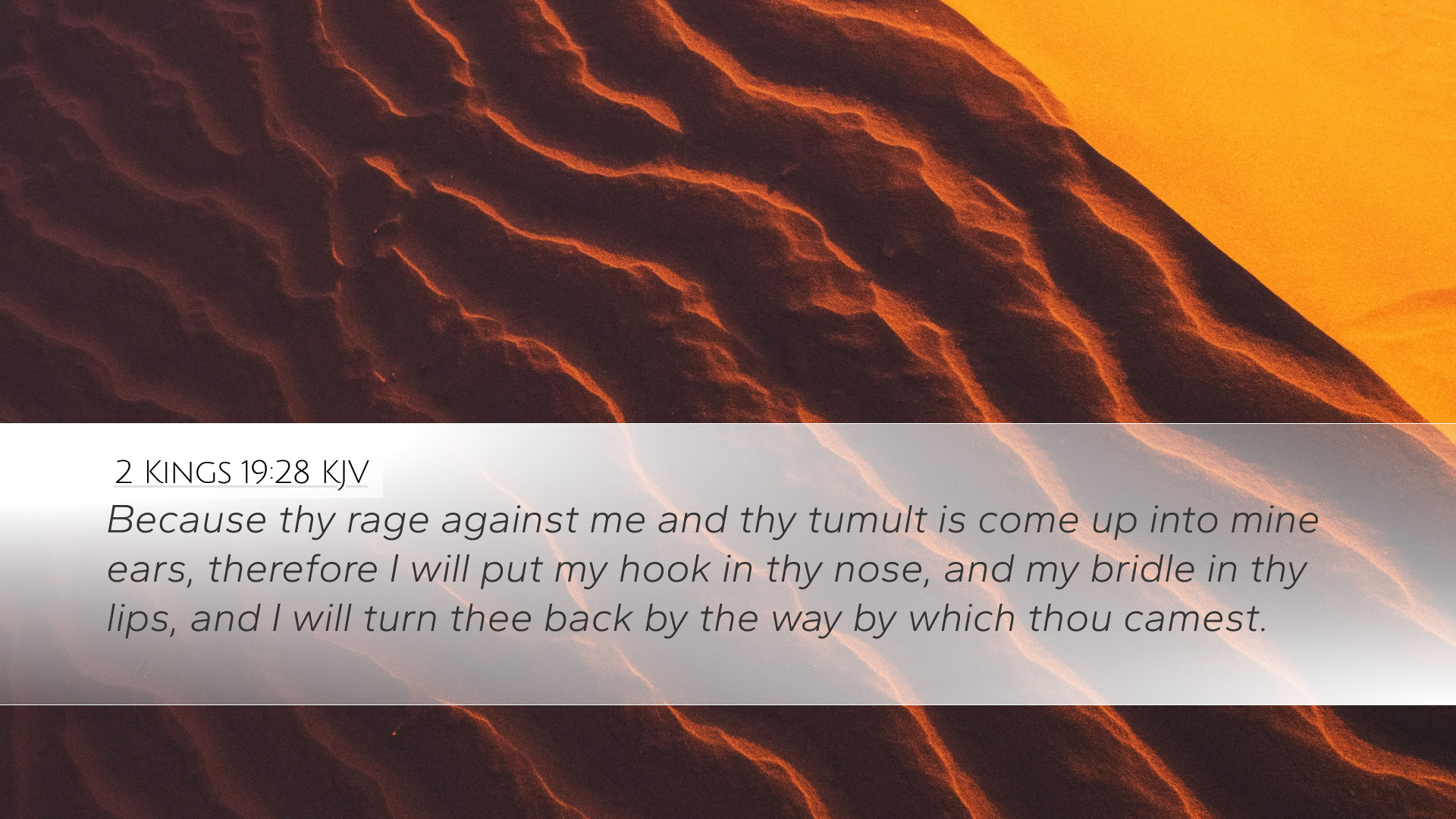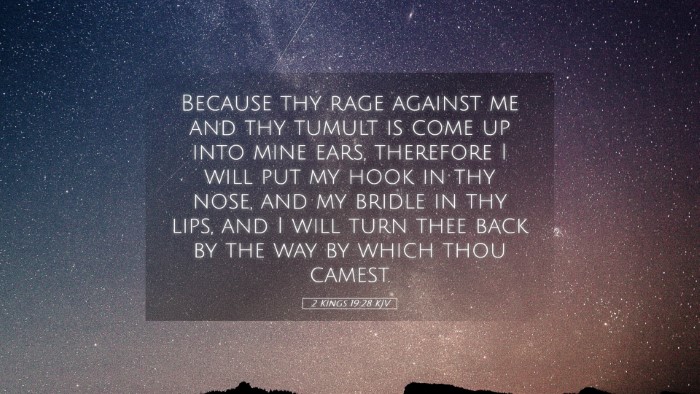Commentary on 2 Kings 19:28
Bible Verse: 2 Kings 19:28 - "Because your rage against me and your arrogance have reached my ears, I will put my hook in your nose and my bit in your mouth, and I will make you return by the way you came."
Introduction
In the context of 2 Kings 19, we find ourselves amidst a narrative laden with theological significance and prophetic insight. This verse occurs in a passage where the Assyrian king Sennacherib’s taunts against the people of Judah and their God are met with divine response through the prophet Isaiah. The intensity of the imagery used in this verse serves to convey God's sovereignty over the nations and His control over earthly powers.
The Assyrian Threat
In the broader context of 2 Kings 19, Sennacherib's invasion is a significant event. He aimed to demoralize King Hezekiah and the people of Judah through fierce propaganda and psychological warfare, asserting that their God could not save them.
- Historical Context: Sennacherib’s arrogance was not merely directed at the people but was a direct affront to Yahweh, the God of Israel.
- Theological Implications: The verse highlights God’s response to human arrogance and the divine order in light of human pride.
Verse Dissection
“Because your rage against me and your arrogance have reached my ears,” elucidates the passionate fury of Sennacherib against God Himself. This phrase echoes a common biblical theme: God hears the raging of those who oppose Him. As noted by Matthew Henry, “God will not overlook the pride and scorn with which Sennacherib has spoken, for all that is in the hearts of men is laid bare before Him.”
“I will put my hook in your nose and my bit in your mouth,” is a vivid metaphor employed to depict God’s judgment on the Assyrians. Albert Barnes comments that this imagery illustrates how God would lead Sennacherib back to his land as one would control an unwilling animal, demonstrating His authority over the king.
“And I will make you return by the way you came,” signifies a prophetic decree concerning Sennacherib’s eventual retreat, marking the futility of his military ambitions against Judah. Adam Clarke emphasizes that this was a direct message of hope to Judah, reassuring them of divine deliverance from enemies that seemed invincible.
Theological Reflections
This passage speaks volumes about God's sovereign power in history. The pride of nations becomes trivial when faced with divine will, as illustrated in the fate of Sennacherib. Such reflections serve to reinforce the faith of believers, reminding them that no matter how imperious adversaries may seem, they are subject to the divine justice and authority of God.
- The Nature of God's Judgment: The passage is not only a statement of judgment but also a method of divine teaching. It reveals God's method in dealing with arrogance.
- Hope for God’s People: In a time of crisis, these words instilled confidence, affirming God’s readiness to fight for His people.
- Contrasts between Human Pride and Divine Authority: Sennacherib's defiance contrasts sharply with God's ultimate control over nations and rulers.
Application for Today
For pastors and theologians, this commentary invites reflection on the present-day context of faith communities encountering opposition. The narrative provides a framework for understanding the enduring power of prayer and reliance upon God for deliverance amidst struggles and threats. It encourages the church to maintain its integrity against external challenges, confident in a God who holds the heart of kings in His hand.
Concluding Thoughts
The assurance presented in 2 Kings 19:28 is a powerful reminder of the omnipotent nature of God. In an age plagued by uncertainties and trials, this verse stands as a testament to the God who promises victory over the proud and oppressors. For believers, it is a call to trust in His plans, knowing that their struggles are not in vain and that God actively intervenes in human history to uphold His will and purpose.


